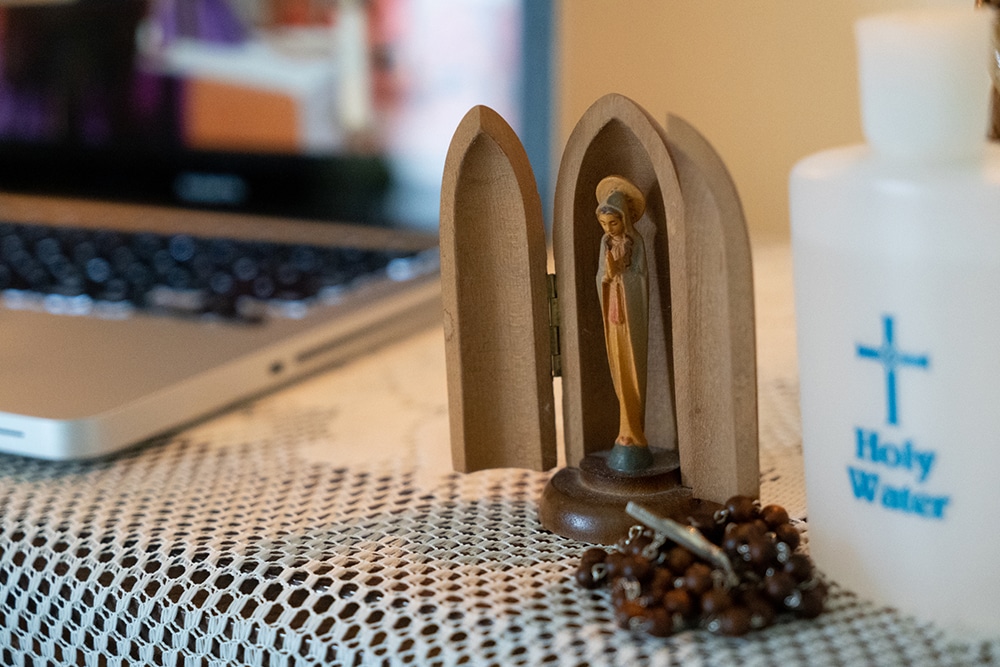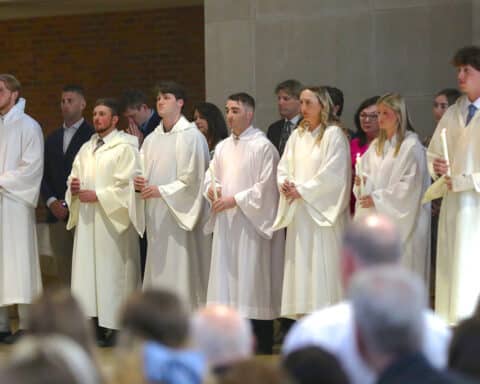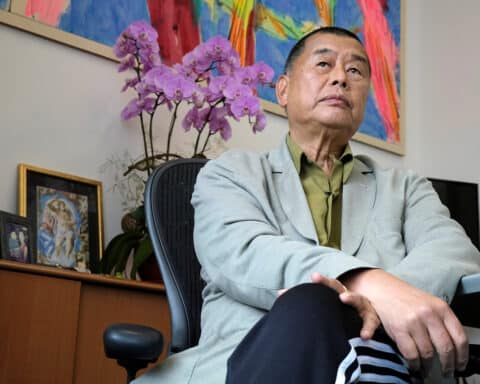St. Paul, in his Letter to the Romans, shares with us this critically important point: “All things work for good for those who love God” (8:28). In other words, even in the midst of a global pandemic that is killing tens of thousands of people, if we remain faithful, the Lord will bring good from it.
We are seeing this good in myriad ways: in caring for our neighbors; in staying home; in finding creative ways to pray together, work together and celebrate together despite social distancing.
The coronavirus pandemic is offering us many valuable lessons, but for people of faith, perhaps the most valuable of all is this: We cannot and must not take our faith for granted.
What does this mean? Most of the readers of this editorial are likely to be committed Catholics. We go to Mass at least once a week, if not daily; we pray before meals and perhaps before bed; and we frequent the Sacrament of Confession somewhat regularly. We love our faith, and we check the necessary boxes. But behind all that box-checking, are we working hard at growing in our relationship with Christ? If your answer is “yes,” congratulations, and keep it up. If it’s not “yes,” then now, during this crisis, is your chance. For all things work for good for those who love God.
Because of the pandemic, we suddenly find ourselves unable to do what we always thought we would be able to do with relative ease and little effort: attend Mass, receive the Eucharist, go to confession. Our routine that, perhaps, once was on autopilot has been disrupted, and we are feeling deep loss. What we had thought always would be there suddenly is absent. When the sacraments once again are available to us readily and easily, will we marvel at Jesus’ Real Presence before us? Will we be humbled by God’s overwhelming mercy in the confessional? Will we grow in deeper love, gratitude and appreciation for how much he loves us?
The sacraments likely aren’t the only aspects of our faith that we have taken for granted. What about seeing our communities, deepening relationships in Christ, exchanging a hug or the sign of peace? What about attending a religious education or RCIA class? When our communities have been reassembled, will we make a point to greet one another with genuine love and interest? Will we willingly make room in a pew for a stranger to sit down? When we exchange the sign of peace, will we mean it? When we have opportunities for catechesis and community, will we prioritize other things, or will we embrace them?
Perhaps we’ve also taken our priests for granted. These “front-line workers” are now putting themselves at great risk to bring the sacraments to those who need them. They have found new and innovative ways to be present to their communities. They are offering the Sacrifice of the Mass for the entire Body of Christ while we must remain physically absent. Will we pray for them regularly? Will we drop them a note of thanks? When we see them again, will we express our profound appreciation for caring for their flocks?
What about those parish schools whose staff and teachers work so hard to care for the kids put in their charge? Will we take a moment to appreciate them, to thank them, for caring for our most precious treasures?
Closer to home, are we loving as we ought? Have we told our parents, our siblings, especially those from whom we are separated, that we miss them? Have we reached out to those from whom we might be estranged? Have we been the face of Christ to our kids, to our spouse? Have we taken for granted our spouse — that he or she will always be there no matter how we might act? Will we change our ways? Will we love our loved ones better?
A global pandemic doesn’t come along often. In coming months and years, gallon after gallon of ink will be spilled discussing its effects, both short- and long-term. What will our story be? Will it say we carried on with business as usual, assuming Our Lord and the Church will always be there when we decide to re-engage? Or will we make a change? Will we stop taking our faith for granted?
Our Sunday Visitor Editorial Board: Gretchen R. Crowe, Scott P. Richert, Scott Warden, York Young





